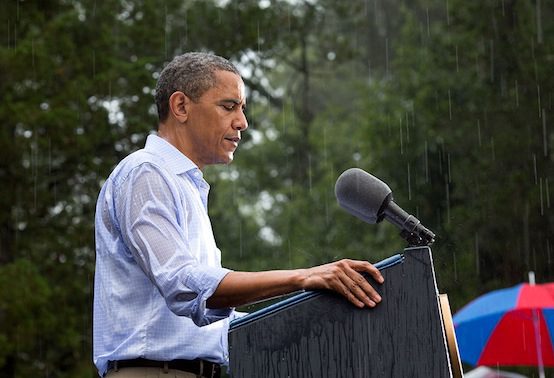How Obama Sets Himself Up To Fail in Foreign Policy (II)

Dan Drezner tries to make sense of Obama’s polling numbers on foreign policy:
When Americans are asked about specific foreign policies, they tend to support the administration, because they’re assessing concrete policy outputs. When asked a more general question about foreign policy, or even foreign policy towards Iraq, they’re likely assessing the policy outcomes. And while Americans are reluctant to intervene overseas, they’re also not keen on Iraq falling apart, ISIL acquiring a statelet, Russia annexing parts of Ukraine, or China bullying its neighbors in the South China Sea, etc. Americans want the free pony — they want the U.S. to not expend blood and treasure overseas, but they also want the liberal order not to fray.
That’s possible, but I suspect there is something else going on. It seems more likely that Obama’s ratings on foreign policy keep dropping because he sets goals that his policies can’t achieve, and so his policies are inevitably perceived as ineffective. The perception that a policy “isn’t working” reflects poorly on the administration and contributes to the impression that it doesn’t know what it’s doing. This is true even when the public doesn’t want the U.S. to be involved in the first place. As I’ve said before, Obama sets himself up to fail by trying to take the “lead” in crises and conflicts that the U.S. doesn’t know the first thing about resolving. The mismatch between rhetoric and action has been a persistent problem for this administration. For instance, Obama has made unnecessary declarations about the legitimacy of other leaders and governments (e.g., “Assad must go”) that would seem to require much more aggressive policies than he or the public would be prepared to support. As a result, his policy is judged against the much higher standard that he unwisely set for the administration. Pursuing more ambitious hawkish goals with limited means puts Obama in a bad position at home as well, since it invites attacks from hawks that always want the U.S. to “do more” without giving anyone else something that they can fully support.
Obama also tends to take credit for successes that haven’t happened. He claimed intervention in Libya as a success, but now only the most ideological liberal interventionists still believe this. Now Libya has become another cautionary tale of what comes from rushing into an unnecessary war without preparing for the consequences. At West Point, Obama boasted about isolating Russia, but that obviously hasn’t happened, either. Besides, most Americans have said that they don’t want the U.S. to be “too involved” in the Ukraine crisis, so when Obama boasts about how U.S. “leadership” has achieved something there that probably loses him more support than it gains him. Obama’s predicament is that he is too much of a liberal internationalist to satisfy the public, which is far, far less interested in “leading” the world than foreign policy elites are, but not enough of an aggressive hegemonist to keep foreign policy elites from declaring him to be a failure.
Comments